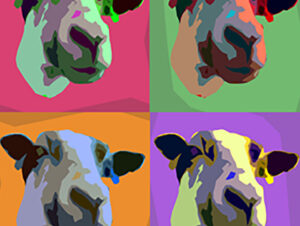Mat Riches reviews Exposed Staircase by Will Eaves (Rack Press, 2022)
If it’s not too blindingly obvious, one important thing to note about a staircase is that it takes us somewhere – up or down. But the ‘exposed staircase’ in the penultimate poem of Will Eaves’ small pamphlet, and the item that gives the pamphlet its name, has “nothing to transact: no / polished attribute or power of conveyance”. It’s a staircase that goes nowhere.
The other thing about ‘exposed’ staircases is that you can usually see right through them (which, for a vertiginous person like myself, can be both scary and exhilarating at the same time). They allow light to flow through them, and in many ways this pamphlet does the same. There is natural light flooding across the floor through “four bright windows”, and “Tall grass holding up the sun” as a stand-in for flaming torches; there is man-made “blank November lamplight” in which the willows are losing their leaves, and the light of a candle, in ‘Reverses’, where:
Candlelight makes a black double-yolk
of the lampshade on the ceiling […]
So light and shadow are motifs that thread through this pamphlet. The opening poem, ‘Matinée’, is ostensibly about a subtle shift in light in late afternoon but, as with a number of the poems in this pamphlet, what’s really happening is a distortion or a reconstruction through a man-made lens. The poem describes the change in light, not in nature tones, but as if it were a cinematic / man-made change:
Behind the clouds it goes,
the clouds like scenery
trucked on by hidden hands
to wring great changes
out of light –
There is much that is cinematic here. Eaves plays with perspective and point of view to evoke the feeling that we are small players on a big stage. One poem opens “Beneath you is the swollen city”. “It’s all so massive, dark and miniature” he says, in another. The atmosphere is frequently ominous or oppressive. Even more disturbing, near the end of the pamphlet, are the two short poems on the same page. In ‘Poplars’ a boy falls from his canoe and gets trapped in a sluice; “Around him the loaned world, / his dog hot-footed on the far side”. In ‘Cygnet’ a weak newborn cygnet falls onto his mother’s back and is carried around the pond “in a sort of gala spectacle” with the magpies and the grey heron eyeing him. Death is never far away, we feel. ‘Omen’ even has a touch of the post-apocalyptic about it, with its garden where “seedlings never push up / from the root, / the bee never docks / in the colour-blind flower”.
Light and shadow are motifs that thread throughout Exposed Staircase
Eaves is clearly interested in how we see the world through the human-made image; he refers to scenery, playback, stock footage and photography. In ‘Reverses’ we are invited to “come inside, / track down the hallway”. In ‘Asleep with flowers and TV’ the narrator says, “The years have issued a new print / of our one film, which I watch daily”. In recognition of how these images are often more compelling than real life, ‘Matinée’ ends,
Where are the FX guys,
the ones who make me
want to believe my eyes?
These images of shade and shadow act to balance those of light, in the same way that the off-kilter and surreal humour balances the seriousness at work here. The “Dalí fence / of damp socks” is an obvious nod to surrealism, but Eaves also gives us some other beautifully odd imagery: “tired-parent buildings”, “half-inflated swans seeing off dogs” and “a pair of crows discussing their arthritis”. We have the equally surreal “unexplained cow / on a beach looking at her shadow” and a delightful image of “the moon / with its yarmulke at an angle”. There is something lovely about how these elements of high art and the everyday are smashed together.
A central question of this pamphlet is how do we fit in alongside nature in the modern world we have constructed for ourselves? Throughout the pamphlet Eaves captures moments in the natural world and juxtaposes them with man-made things in an attempt to answer this question. In ‘Omen’, after the wind stops,
we are sloshed
to and fro in the silence
like drowned ducklings
or a photograph developing
in its tray.
It has become “[h]arder and harder to avoid, these images of aftermath”, he says, and there’s “no reply”. In ‘The Path’ we see the natural world rubbing along with something man-made and imposed like a bridge.
On the far side of the high bridge
stands a clump of willows
losing leaves
in the blank November lamplight.
The morning is all angles and degrees
like the coots practising lift-off
in their quarter of the pond
But ultimately, to the question of why we can’t be fully at home in nature, Eaves doesn’t give an answer. The final poem in the pamphlet, ‘The Mad’, closes, ”If it’s answers you’re after, / Try better questions.”
There are just 11 poems in this beautifully produced pamphlet. It’s not many, but as with all staircases, they get you where you want to go. They lift you up and bring you back down again, but slightly different from when you started. Perhaps that’s what poetry does? It’s certainly what Will Eaves has done with these poems.
Mat Riches is ITV’s unofficial poet-in-residence. His work’s been in a number of journals and magazines, most recently Wild Court, The High Window and Finished Creatures. He co-runs the Rogue Strands poetry evenings, reviews for Sphinx Review, The High Window and London Grip, and has a pamphlet due out from Red Squirrel Press in 2023. Mat Riches’ blog Wear the Fox Hat is here.

